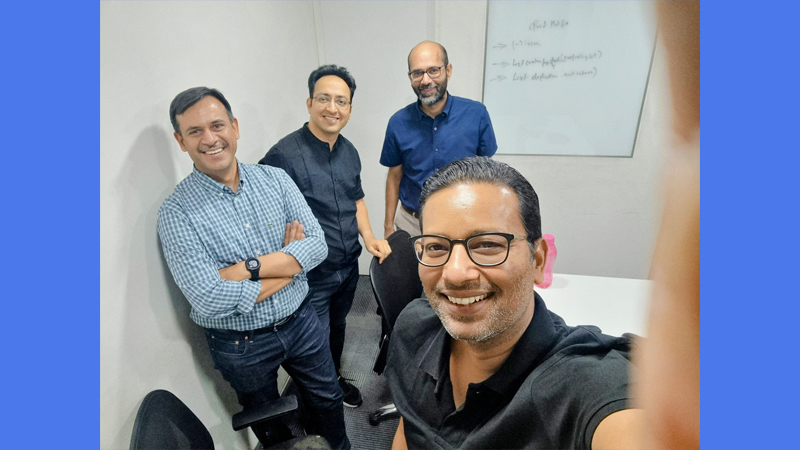Selecting a term life insurance plan that extends even after working years may not be the most financially sound decision. Term insurance plans are indeed among the most affordable and useful types of life insurance, but determining the most ideal life cover duration could be tricky. Indeed, some individuals might opt for life coverage until they are 70 or 80, influenced by key factors such as the growing trend of opting for semi-retirement, extended working phase, or the sole desire to create and leave a legacy for the kids. Then again, such notions typically stem from common misunderstandings about the actual purpose of life insurance for an individual. This makes it crucial for individuals to understand the meaning of life insurance, the value of coverage, and how one can benefit from it to gain a better picture.
On that note, let’s learn more about life insurance in detail to understand whether to opt for a longer life cover or boost investments.
What is the actual meaning of life insurance?
The major purpose of life insurance coverage often lost its way among the sea of misconceptions. While insurance can help in wealth accumulation, it should be noted that its crucial role is to help buffer one’s family from the potential financial hardship if the insured, who is the main breadwinner, if they pass away under unexpected circumstances. This turns out to be true during the insured’s wealth-building years when their dependents i.e., the policy beneficiaries and potential financial liabilities rely heavily on their regular income. Any financial disruption during this coverage period can trigger significant financial stress, making the policy one of the most critical things during the earning years.
For those individuals who reach their retirement with all their ducks in a row, the actual need to have life insurance extending beyond their working years may diminish significantly. Ideally, such entities are deemed capable of successfully navigating their wealth accumulating phase, freeing the individuals from the ultimate financial obligations such as their major liabilities, and ensuring all their kids are well-settled and taken care of even in their absence. Their accumulated corpus for retirement would provide them with adequate financial security to enjoy and relax in their retirement life. Moreover, if they wish to work after the age of 60 the decision would be driven by their personal choices and not due to financial necessity.
Did you know that long-term life cover is not cheap?
The life insurance cover would come at a considerably steep cost if an individual continues to pay their premiums into their retirement.
Let’s take a look at the example below to understand this better –
Suppose, Rajesh, a 35-year male, who is a non-smoker, plans to get a Rs. 1 crore term insurance plan. The annual premium will be paid till he turns 60 would be around Rs. 16,600. However, if Rajesh decides to stretch the insurance plan until they turn 70, he would end up paying Rs. 21,960, which is 32% more than the premium Rajesh would pay for his cover till 60.
Similarly, if he extends the same insurance term until he turns 85 years of age, the resulting difference would surge by 68% to Rs. 27,850, compared to the insurance coverage until 60. Notably, this rise in premium with age stands true for all life insurance policyholders.
This aspect highlights that the longer an individual stretches their life cover term beyond their working years, the total amount of premium would also increase.
Isn’t insurance a popular probability business?
Insurance companies tend to operate on the basic principle of probability and the law of averages. To accurately assess the probability of the risk of a policy buyer dying at different ages, the insurer typically relies on mortality tables to pinpoint the price of the premiums.
When it comes to accurately selecting the ideal term of life cover of insurance, opting for a longer tenure that extends beyond one’s working years may not be prudent. This is because, not only would the individual end up paying a high premium, but they would also lose out on their opportunity of investing that premium in other suitable investment options. As a result, it is often said that the ideal age to get a term plan should extend up to 60-65 years at the most and must be picked only after a thorough term insurance comparison to ensure their retirement friendliness.
For instance, as seen in the case of Rajesh, choosing a term insurance plan that often covers him coverage till he is 60 and not 85 would help him save Rs. 11,250 annually for nearly 25 years of his actual working life, i.e., 60 minus 35. If he invests that savings in a year for a span of 25 years and remains invested for the next 25 years, i.e., between the ages of 60 and 85, their corpus would multiply and stand at Rs. 1.3 crore given the rate of returns is 10% pa. In this case, the accumulated corpus would prove useful in his retirement, allowing him to account for his sustenance and healthcare expenses, instead of locking the sum into premiums.
Notably, today, the average life expectancy has surged due to continuous advances in healthcare and medicine. In this regard, what an individual actually needs is not really a longer life cover but adequate corpus to lead a financially independent life post-retirement. This may suggest that the additional payment towards life premiums leading up to retirement may not be a functional proposition.
That said, life cover is not dispensable and individuals must make ample provisions to safeguard their financial future, especially after retirement. In this regard, both investing in pro-retirement investment options and having ample coverage leading up to retirement would prove beneficial in building a corpus. Notably, the amount of corpus should depend on their needs and requirements to lead a comfortable life post-retirement without being dependent on others for financial help or refuge.












